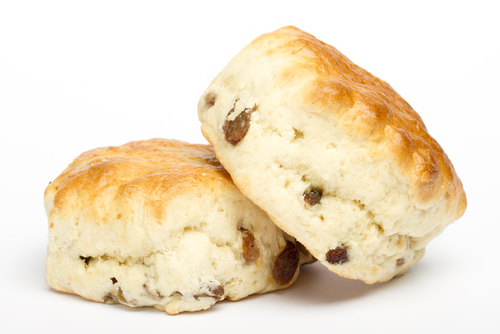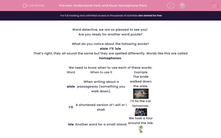Word detective, we are so pleased to see you!
Are you ready for another word puzzle?
What do you notice about the following words?
aisle I’ll isle
That’s right, they all sound the same but they are spelled differently. Words like this are called homophones.
We need to know when to use each of these words:
| Word | When to use it | Example |
|
aisle |
When writing about a passageway (something you walk down). |
The bride walked down the aisle.
|
|
I’ll |
A shortened version of I will or I shall. |
I’ll fix the car tomorrow.
|
|
isle |
Another word for a small island. |
We took a tour around the isle.
|
Using these meanings, which word would best complete this sentence?
I walked down the supermarket ____ (aisle, I’ll, isle).
The best answer is aisle as it is something we walk down, so: I walked down the supermarket aisle.
Here are some other examples of homophones and when to use them:
|
boy |
A young man. |
buoy |
A float in the sea. |
|
current |
A flow of water or electricity. |
currant |
A small dried fruit. |
Let’s take a look at another question:
Which word would best complete this sentence? Use the table above to help you and don’t forget to make a note of any new words.
The (buoy/boy) was confidently swimming in the sea.
The answer is boy as the marker would not confidently swim, it would just float. The context tells us that this is a human behaving in this way! So: The boy was confidently swimming in the sea.

Let’s try another:
They didn't like the ____ (currents/currants) in their scones.
The answer is currants as we are talking about the dried fruit, so: They didn't like the currants in their scones.

Final one, and then it’s your turn:
Beware of strong (currents/currants) when you're swimming.

The best answer is currents as we are talking about the flow of water, so: beware of strong currents when you're swimming.
(1).png) |
Pssst!! Top Tip: The best way to get to grips with pesky homophones is to write them down in your vocab book. This way, you can learn what each spelling means. |
It's now your turn to hunt the homophones.
Good luck!










